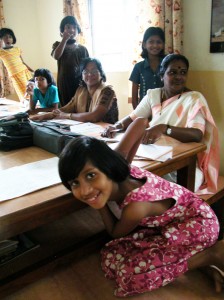 Congressman William Keating remarked that women constitute half of the Earth’s population and serve as the sole caretaker in many households, and yet they “continue to be 2/3 of the world’s illiterate population,” at last month’s Women’s Education hearing “Promoting Development, Countering Radicalism.”
Congressman William Keating remarked that women constitute half of the Earth’s population and serve as the sole caretaker in many households, and yet they “continue to be 2/3 of the world’s illiterate population,” at last month’s Women’s Education hearing “Promoting Development, Countering Radicalism.”
The recent kidnapping of 276 Nigerian schoolgirls by the Islamist extremist group Boko Haram, which name translates roughly to “Western education is forbidden,” shines a global spotlight on education for women. While many are denied access to education due to financial or family obligations; the victims in the Nigerian kidnapping were denied and punished for receiving education. In a recently released video, a man claiming to be Boko Haram leader Abubakar Shekau, threatens to sell the girls and says “Girls, you should go and get married.”
The mounting pressure on females seeking to gain education has reached America as traffickers target U.S. teens to be sold in local trafficking markets. Traffickers target girls in their early teens to meet a demand for commercial sex with young females. The girls are banned from attending school or developing critical job skills necessary to participate in a competitive job market once they escape.
Humera Khan was encouraged by her father to travel from South Asia to the United States saying “education is enough for you to break social norms.” On April 3 she addressed the House Foreign Affairs Committee on the power of educating women, saying education gave her the power to regain control of her own life, as well as inspire and empower her to continue moving towards success. Today, Khan is the Executive Director of an independent research organization. She suggested looking for education solutions and resources locally where people are more likely to invest in the women and girls of their own community.
Education not only allows for career advancement, it builds self-confidence, capability, empowerment and analytical decision making skills that impact every aspect of a woman’s life. It is important to offer educational opportunities to sex trafficking survivors to ensure they are equipped with the knowledge, confidence, and independence to regain control of their lives. Some restoration programs assist young girls and women in returning to high school, obtaining her GED, or enrolling in college. Combining educational opportunities with vocational training programs like the Women’s Investment Network equips young girls and women to become responsible and financially sound once employment is gained.
Shared Hope recognizes the value of education in the restoration process. We created Terry’s House to offer survivors an affordable housing option so they can focus their time, effort and resources on their education.
Read Shamere’s story of overcoming her trafficker to return to school.






